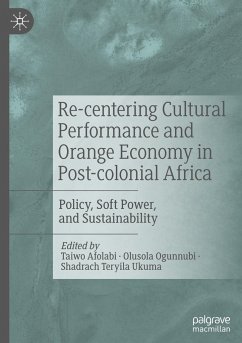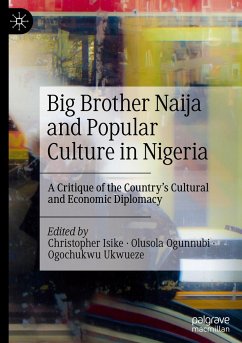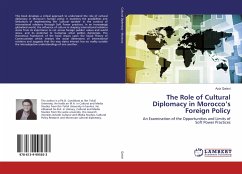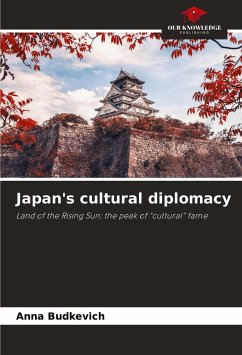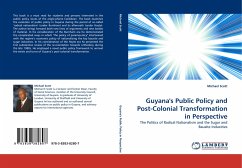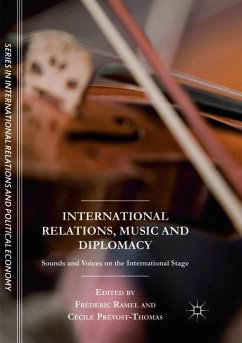
Re-centering Cultural Performance and Orange Economy in Post-colonial Africa
Policy, Soft Power, and Sustainability
Herausgegeben: Afolabi, Taiwo; Ogunnubi, Olusola; Ukuma, Shadrach Teryila
Versandkostenfrei!
Versandfertig in 6-10 Tagen
76,99 €
inkl. MwSt.

PAYBACK Punkte
38 °P sammeln!
This book explores the role of national theatres, national cultural centres, cultural policy, festivals, and the film industry as creative and cultural performances hubs for exercising soft power and cultural diplomacy. It shows how can existing cultural and non-cultural infrastructures, sometimes referred to as the Orange Economy, open opportunities for diplomacy and soft power; ways by which cultural performance and creative practice can be re-centered in post-colonial Africa and in post-global pandemic era; and existing structures that cultural performers, diplomats, administrators, cultura...
This book explores the role of national theatres, national cultural centres, cultural policy, festivals, and the film industry as creative and cultural performances hubs for exercising soft power and cultural diplomacy. It shows how can existing cultural and non-cultural infrastructures, sometimes referred to as the Orange Economy, open opportunities for diplomacy and soft power; ways by which cultural performance and creative practice can be re-centered in post-colonial Africa and in post-global pandemic era; and existing structures that cultural performers, diplomats, administrators, cultural entrepreneurs, and managers can leverage to re-enact cultural performance and creative practice on the continent.
This volume is positioned within postcolonial discourse to amplify narratives, experiences and realities that are anti-oppressive especially within critical discourse.
This volume is positioned within postcolonial discourse to amplify narratives, experiences and realities that are anti-oppressive especially within critical discourse.





